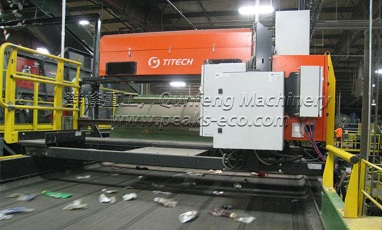The following must be put in the paper and cardboard container:
1. Newspapers, magazines, catalogues, advertising materials;
2. Notebooks, printed and blank stationary and drawing paper;
3. Envelopes, books without covers;
4. Cardboard boxes, paper bags and other clean paper packaging.
The following must not be put in the paper and cardboard container:
1. Soiled or wet paper and cardboard;
2. Household paper;
3. Used paper plates and cups;
4. Cardboard drink packaging, Clingfilm;
5. Foil and carbon copy paper.
A container for paper and cardboard must be obtained for all registered immovables with at least 5 flats and for institutions and companies that create more than 20 kg of such waste per week. Waste paper created in residential buildings with fewer than 5 flats and residential houses should be taken to the waste station.
The following must be put in the container for biodegradable waste:
1. Meat and fish waste, fruit and vegetables, fruit and vegetable peels, bread, precooked food, bakery products and confectionery, cheese, butter and margarine and other solid food waste.
2. Household paper, tissues, coffee grounds, paper filters, teabags.
3. House plants and cut flowers.
The following must not be put in the container for biodegradable waste:
1. Cooking oil, milk, sour milk, soup, sauces and other liquid food and foodstuffs.
2. Liquids.
3. Large bones.
4. Clingfilm, metal, glass, ashes, cigarette butts, packaging, waxed and laminated cardboard and other non-biodegradable waste.
A container for biodegradable waste must be obtained for all registered immovables with at least 10 flats and institutions and companies that create more than 20 kg of such waste per week.
Food waste created in residential buildings with fewer than 10 flats and in residential houses must be turned into compost in a composter on the grounds of the house or placed into a biodegradable waste container. We advise people who care about the environment to compost their food waste in a composter. What must be kept in mind is that food waste may be composted only in a closed composter and not on an open pile.
Garden and park waste (leaves, twigs, grass, etc.) may be composted on one's own grounds in an open pile or taken to the composting field (Rahumäe tee 5a).
The following must be put in a packaging container:
1. Plastic packaging: yoghurt or butter tubs; oil, ketchup and mayonnaise bottles; packaging of cosmetic products (e.g. cream jars, shampoo bottles); plastic dishes and boxes; plastic bags and Clingfilm; other clean plastic packaging.
2. Glass packaging: glass bottles without tax labels, glass jars, other clean glass packaging.
3. Metal packaging: tins, metal lids and tops of food and drink packaging, other clean metal packaging.
4. Drink cartons: clean milk, juice and yoghurt cartons.
The following must not be put in a packaging container:
Packaging that is soiled with food or half-full, plastic toys, packaging of hazardous substances (e.g. household chemicals), aerosol packaging (e.g. hairspray), window glass and glass sheets, lighting bulbs.
There are approximately 300 public packaging containers in Tallinn where packaging can be deposited free of charge. If you put packaging waste in the same container as your mixed household waste, you pay double for its handling as the price of handing the packaging has already been added to the product.
The following must be taken to hazardous waste collection points:
1. Leftover oils and oil filters, oily sweeps (up to 20 litres).
2. Paint, glue, varnish and solvent leftovers in retail packaging (up to 10 litres).
3. Mercury lamps (up to 10).
4. Medicines with expired use-by dates and unusable medicines, other medical waste (up to 2 kg at a time).
5. Chemical and pesticide waste (up to 10 litres).
6. Mercury thermometers and other waste that contains mercury (up to 2 kg at a time).
7. Batteries (in unlimited quantities).
We can supply waste sorting system, waste solution equipment, waste recycling system, garbage sorting equipment, recycling sorting system and so on. Looking forward to your purchase!
